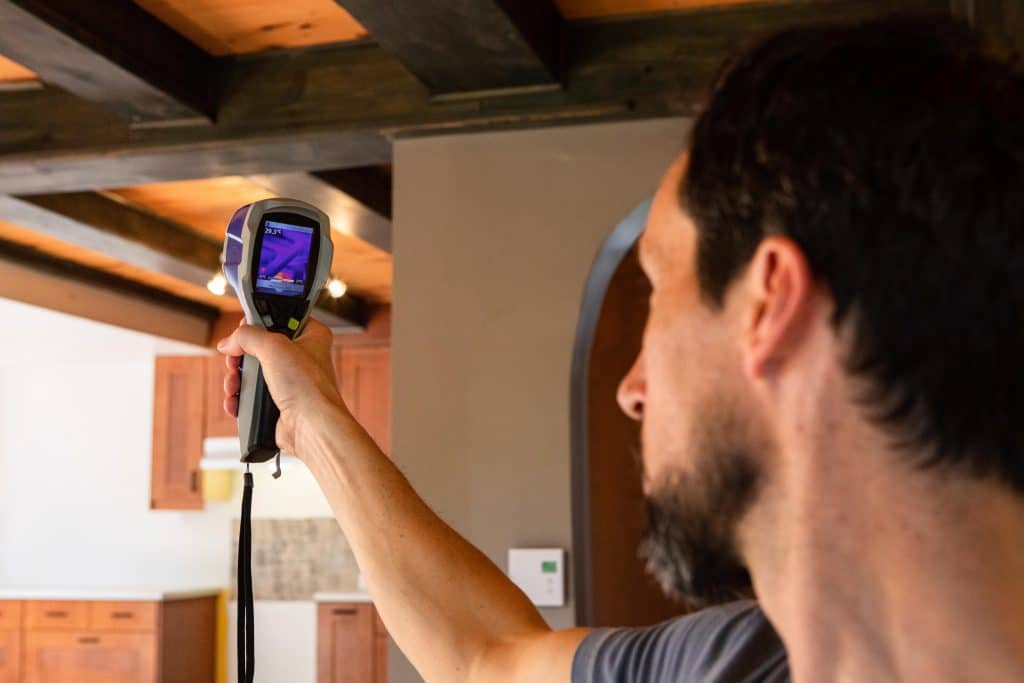
When buying a home or investment property in Australia, there is one step that should never be skipped — the building inspection. Yet, many buyers hesitate to book one, especially when there is no guarantee they will secure the property. It can feel like an extra expense during an already costly process, however skipping a building inspection can end up costing tens of thousands of dollars in repairs, not to mention the stress and time involved.
Whether you are purchasing your first home, upgrading to a larger property, downsizing or securing an investment property, a professional building inspection can be the difference between buying with confidence and buying into a costly mistake.
What Is a Building Inspection?
A building inspection is a detailed assessment of a property’s condition, carried out by a qualified building inspector. It examines the structural integrity, safety and compliance of the home, looking for both visible and hidden defects.
A comprehensive inspection report will usually cover:
- Structural issues — such as cracks in walls, foundation movement or roof damage.
- Water damage and leaks — including signs of mould, dampness or poor drainage.
- Pest activity — often conducted alongside a pest inspection to identify termites or other infestations.
- Electrical and plumbing issues — outdated wiring, faulty switches, leaking pipes or low water pressure.
- Compliance concerns — whether renovations or extensions meet building codes.
Why Building Inspections Are Essential in Australia
Australian homes face unique conditions — from harsh coastal climates and high humidity to bushfire-prone areas and termite activity. These environmental factors can accelerate property deterioration, making inspections even more important.
Here is why every buyer should invest in a professional building inspection:
1. Identifying Hidden Problems
Not all issues are visible during an open home. You might notice peeling paint or a cracked tile, but you probably won’t see the termite damage behind the walls or the leak in the roof space. A building inspector uses specialised tools and training to detect problems you would otherwise miss.
2. Saving Money in the Long Run
While a building inspection requires an upfront investment, it can save you significant money in the future. Identifying major structural defects before purchase gives you the opportunity to walk away from a risky deal or negotiate repairs and price reductions, helping you avoid unexpected and costly surprises after settlement.
3. Providing Negotiation Power
If the inspection report highlights necessary repairs, you can use this to renegotiate the purchase price or request the seller to fix the issues before settlement. In competitive property markets like Melbourne, this knowledge is a powerful bargaining tool.
4. Peace of Mind for Buyers
Buying a property is a significant financial commitment. Knowing the home is safe, sound and compliant lets you move forward with confidence.
Common Issues Found in Australian Building Inspections
From my experience in the real estate industry, here are some of the most common issues that show up in building inspection reports across Australia:
- Termite damage – A common issue in many parts of Australia, especially in areas with warmer climates or high moisture levels.
- Rising damp – Common in older properties and homes with poor drainage.
- Roof damage – Cracked tiles, rusted gutters and inadequate roof ventilation.
- Foundation movement – Can cause cracks in walls and uneven floors.
- Outdated wiring – A safety hazard and often costly to replace.
- Illegal renovations – Extensions or modifications done without council approval.
When Should You Book a Building Inspection?
The best time to arrange a building inspection is before the contract becomes unconditional. In many states, you can make your purchase subject to a building and pest inspection — a clause that allows you to withdraw from the sale if major defects are found.
For auctions, where there is no cooling-off period, you will need to complete the inspection before bidding. This ensures you know exactly what you are buying before committing.
Choosing the Right Building Inspector
Not all building inspectors are created equal. To ensure you are getting a thorough and reliable report:
- Look for qualifications — They should be licensed or registered, depending on your state or territory.
- Check experience — Inspectors with a background in construction often provide more detailed insights.
- Ask for a sample report — This will show how comprehensive and easy-to-understand their findings are.
- Ensure independence — Your inspector should not have any relationship with the selling agent or vendor.
The Cost of Skipping a Building Inspection
Let’s say you find your dream home and decide to skip the inspection to save $500. Six months later, you discover termite damage in the walls that costs $20,000 to repair, plus months of disruption to your living situation. Suddenly, that inspection fee seems like a small price to pay.
This isn’t just a worst-case scenario — it happens to buyers every week across Australia. Building inspections protect you from financial and emotional stress by ensuring you have the full picture before you commit.
Tips for Buyers: Making the Most of Your Inspection Report
- Ask questions – A good inspector will explain the significance of each finding and what it means for the property’s value and safety.
- Don’t panic over minor issues – Almost every home will have some defects. Focus on major structural concerns or safety hazards.
- Use it for future planning – Even if you go ahead with the purchase, the report can act as a maintenance guide.
Building Inspections and Investment Properties
If you are buying an investment property, a building inspection is even more critical. Unexpected repair costs can eat into your rental yield and disrupt your cash flow. An inspection also helps you budget for future maintenance, ensuring your property remains appealing to tenants and compliant with rental safety standards.
Key Takeaways for Australian Property Buyers
- Always invest in a building inspection before committing to a purchase.
- Use the report to negotiate price or repairs.
- Choose a qualified, independent inspector with local knowledge.
- Remember — the small upfront cost can save you from major financial loss later.
Buying a home or investment property is one of the biggest financial decisions you will ever make. A building inspection is your safeguard, giving you the clarity and confidence to move forward — or walk away — with your eyes wide open.
Skipping a building inspection might save you a few hundred dollars today, but it could cost you thousands tomorrow. Make it a non-negotiable part of your property buying process — your future self will thank you.
By Lynda McNeill



